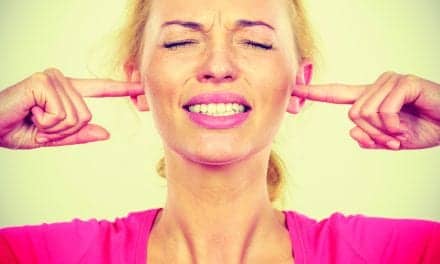Updated March 11, 2019. Note that the CDC updated its “Guidance on Evaluating and Testing Persons for Coronavirus Disease 2019 (COVID-19)” on March 8, as well as posting the document “People at Risk for Serious Illness from COVID-19” on March 10. The latter document includes links for “Prevention and Treatment,” “Get Your Household Ready,” and “What to Do if You are Sick.”
“First do no harm,” is one of the major tenets in healthcare. While the Centers for Disease Control (CDC) is still learning about COVID-19, current information suggests that older people and people with severe chronic health conditions, such as heart disease, lung disease, and diabetes, are at higher risk of developing more serious illness from COVID-19.
Given that the largest population served in hearing healthcare is seniors—and diabetes and heart disease are comorbidities associated with hearing loss—hearing care professionals and all their staff members should take particular care to ensure they do not become exposed to and/or become unwitting vectors for the coronavirus. In short, audiologists, hearing aid specialists, and ENTs should be particularly vigilant in washing hands, avoiding unnecessary patient contact, and following other National Institutes for Health (NIH) and CDC guidelines for healthcare professionals during this time.
Recently, the CDC published an excellent summary document titled: “What Healthcare Personnel Should Know about Caring for Patients with Confirmed or Possible COVID-19 Infection” on its website. Additionally, there exist several good general infection control articles specific to hearing healthcare, including Oaktree Products’ “Infection Control Resource” webpage.
A couple things from reading the CDC and NIH websites jump out: Clinicians should immediately implement recommended infection prevention and control practices if a patient is suspected of having COVID-19. They should also notify infection control personnel at their facility and their state or local health department if a patient is classified as a “patient under investigation” (PUI) for COVID-19.
More Advice for Guarding Against COVID-19
Robert Tysoe, a veteran consultant to the hearing healthcare field who specializes in physician-related interactions and referrals recently sent a post to his clients with some other practical advice regarding precautions in response the coronavirus (COVID-19) outbreak:
- Review the NIH document “Coronovirus Disease 2019 (COVID-19)” so that you are able to guide your staff, your patients, and your families in the upcoming Coronavirus (Covid-19) season.
- Ask all patients to wash their hands prior to being seen or touched by a hearing healthcare provider, whether they have been referred by a physician, they are a self referral, or a walk-in patient.
- Advise patients over the phone to either stay home and/or see their physician if they feel unwell prior to coming to the hearing healthcare practice.
- Add a question to your patient history intake form that allows the patient to divulge whether they are currently being treated for a fever, cough, virus, chest infection, and current medications taken. You may also wish to ask if they have recently traveled outside the United States and where.
- Caution is advised for patients over 65 years in poor health who are smokers/ex-smokers with a history of respiratory diseases, such as pneumonia, chronic obstructive pulmonary disease, asthma, and allergies.
- Identify whether patient resides alone or with others, and if they live in a patient care facility. Crowded living conditions facilitate the spread of the virus.
- Advise all staff members to stay home if they have a fever or cough until they have seen a physician.
- Advise the Physician Liaison on your staff to follow all front desk directions explicitly when they make face-to-face calls on physicians’ offices.
- We are in unknown territory here, and it is advisable to stay current, and be prepared.
Tysoe reminds that the NIH Guidelines are more complete than the above, and it is recommended that you review them carefully. —KES
Karl Strom is editor of The Hearing Review and has been reporting on hearing healthcare issues for over 25 years.
Image: © Buddhilakshan4 | Dreamstime.com




